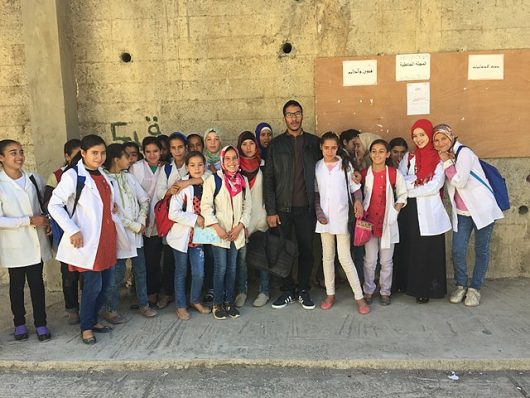Girls’ Education in Morocco: The Long Road to Progress

Gender Roles a Barrier to Girls’ Education in Morocco
The idea that women are not seen as equal to men in any facet is not something new in Morocco. This has been a social norm as old as civilization. The woman is seen as the caretaker and custodian of the household while the men provide for the family and work to earn money.
There are many factors that contribute to this situation, such as traditions that favor boys’ education over girls’, the number of young girls forced to work and early marriage. Girls are deprived of the necessary tools needed to succeed in life simply because they are not male. This type of gender inequality is an enormous problem as well as a human rights issue.
In addition, the distance to school for Moroccan girls can be a hurdle compared to boys. According to the Peace Corps, “The further away from the home, it is believed, the greater the girl’s vulnerability, the greater the danger.” Unfortunately, girls are the victims of most attacks due to society identifying them as feeble. Not being given the opportunity to receive a quality education in a country where it is mandatory, is quite saddening when knowing the full extent of girls’ education in Morocco.
Changing Social Norms Are Part of the Solution
Many steps can be taken in order to combat this issue. First, laws regarding gender equality in Morocco need to be better enforced. Morocco guaranteed full equality in its 2011 constitution, but many women in the country believe there is more work to be done to make this a reality.
Another solution is an alteration in traditional practices. It is well known that males are seen as superior in every aspect of society, but a shift in this view would help girls and women. Not only would girls benefit from being treated equally, but this would also cause a domino effect that would influence other parts of the economy and education system.
Education would be affected the most in a positive way. Girls would feel empowered and be more willing to attend school if they are not looked down upon like they are today. Girls would also be able to concentrate and focus more on their studies because they would not have to worry about mistreatment or the possibility of being taken advantage of.
According to Morocco World News, “In terms of urban-rural dichotomy, the situation for women in rural areas remains significantly poorer with rates of illiteracy standing at 87 percent.” In a country where the role of women is becoming increasingly important, why are almost 90 percent of its women illiterate? This verifies a very large gender gap in quality education and will most likely continue if action is not taken.
Whether there will be change regarding girls’ education in Morocco remains to be seen, but when the proper information is obtained and individuals are aware of what needs to happen to see a difference, many ideas and solutions will begin to arise and hopefully end a gender gap in the education system that has been part of Morocco for a very long time.
– Matthew McGee
Photo: Google
